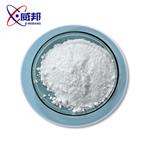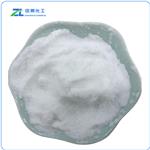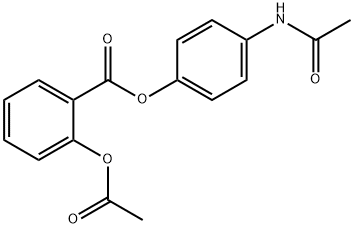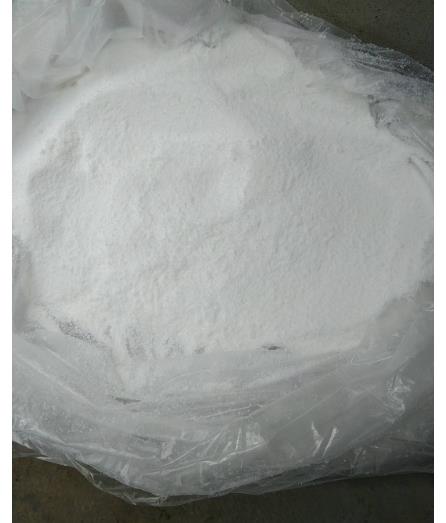Benorilate: A Comprehensive Overview of Its Chemical Nature, Therapeutic Applications, and Storage Guidelines
Introduction
Benorilate, a compound garnering substantial attention within the pharmaceutical realm, integrates therapeutic benefits akin to aspirin while boasting superior gastric tolerance. This article delves into the intricate facets of benorilate, encompassing its chemical structure, constituent elements, diverse applications across medical domains, and critical guidelines for its optimal storage. As a pivotal player in pain management and anti-inflammatory treatments, benorilate's unique blend of properties underscores its pivotal role in advancing pharmaceutical solutions, catering specifically to individuals necessitating efficacious relief with minimal gastrointestinal implications.

Figure 1 Characteristics of BENORILATE
Chemical Nature
Benorilate, known chemically as N-(para-acetoxybenzoyl)-anthranilic acid, is classified as an acetylated salicylate, originating from the reaction between salicylic acid and acetic anhydride. This synthesis produces a unique molecular structure that incorporates characteristics from both starting compounds. The presence of an acetoxybenzoyl group attached to the anthranilic acid backbone differentiates benorilate from typical salicylates, influencing its pharmacological properties and behavior in biological systems. This chemical modification confers distinct attributes such as altered solubility, metabolism pathways, and possibly varying degrees of biological activity compared to its parent compounds. Understanding the chemical nature of benorilate aids in comprehending its therapeutic effects and potential applications in medical practice.
Composition
The composition of benorilate primarily consists of para-acetoxybenzoic acid and anthranilic acid. These key components undergo esterification to create the compound, a process that modifies its chemical structure and confers distinct pharmacokinetic and pharmacodynamic properties not typically found in traditional salicylates. The incorporation of para-acetoxy benzoic acid enhances the compound's solubility and potentially alters its bioavailability compared to simpler salicylate derivatives. Anthranilic acid, on the other hand, contributes to the overall pharmacological behavior of benorilate, influencing aspects such as its metabolism and interaction with biological systems. This unique composition underlies Benorilate's specific therapeutic characteristics and its differentiated role in clinical applications.
Applications
Benorilate finds extensive application in the medical field due to its multifaceted pharmacological properties. It is predominantly valued for its efficacy as an anti-inflammatory, analgesic, and antipyretic agent. These therapeutic benefits stem from its unique chemical structure, which combines aspects of salicylic acid and acetic acid derivatives, resulting in a compound that mitigates inflammation, relieves pain, and reduces fever.
One of the notable advantages of benorilate over traditional salicylates like aspirin is its reduced potential for causing gastric irritation. This makes benorilate a preferred choice for individuals who are susceptible to gastrointestinal discomfort or who require long-term pain management therapy. The compound's ability to alleviate symptoms without significant gastrointestinal side effects enhances patient compliance and safety, especially in chronic conditions such as arthritis and other inflammatory disorders.
In clinical practice, benorilate is often prescribed to manage chronic inflammatory conditions where sustained pain relief and inflammation reduction are essential. Its dual action as both an anti-inflammatory and analgesic ensures comprehensive symptom relief, improving the quality of life for patients suffering from conditions like rheumatoid arthritis and osteoarthritis.
Furthermore, benorilate's antipyretic properties make it effective in reducing fever, which is beneficial in treating various febrile conditions. This versatility underscores its role in treating a spectrum of inflammatory and pain-related ailments, contributing to its widespread clinical use and continued relevance in modern medicine.
Overall, benorilate's distinct pharmacological profile, coupled with its favorable gastrointestinal safety profile, positions it as a valuable therapeutic option in the management of chronic pain, inflammation, and fever, catering to diverse patient needs and ensuring effective treatment outcomes.
Storage Considerations
Proper storage of benorilate is crucial to maintain its stability and efficacy. It should be stored in a cool, dry place away from direct sunlight and moisture. The recommended storage temperature typically ranges between 15°C to 25°C (59°F to 77°F). Additionally, ensuring the container is tightly sealed helps prevent contamination and degradation of the compound over time.
Conclusion
In conclusion, benorilate stands as a noteworthy advancement in pharmaceutical chemistry, combining the therapeutic benefits of salicylates with improved gastric tolerance. Its unique chemical composition and applications highlight its relevance in pain management and inflammatory conditions. Understanding its properties and proper storage guidelines is essential for maximizing its clinical effectiveness. As research continues in pharmaceutical sciences, benorilate remains a pivotal subject of interest, promising further advancements in patient care and treatment strategies.
References:
[1] WEIGUO HU . Solubility of benorilate in twelve monosolvents: Determination, correlation and COSMO-RS analysis[J]. Journal of Chemical Thermodynamics, 2021, 152. DOI:10.1016/j.jct.2020.106272.[2] CHENG YIN WANG X Y H. Determination of benorilate in pharmaceutical formulations and its metabolite in urine at carbon paste electrode modified by silver nanoparticles[J]. Talanta, 2005, 67 3: 437-672. DOI:10.1016/j.talanta.2005.03.009.
See also
Lastest Price from BENORILATE manufacturers

US $1.00/KG2025-04-21
- CAS:
- 5003-48-5
- Min. Order:
- 1KG
- Purity:
- 99%
- Supply Ability:
- 10 mt

US $120.00/kg2025-04-15
- CAS:
- 5003-48-5
- Min. Order:
- 1kg
- Purity:
- 99%
- Supply Ability:
- 20ton


